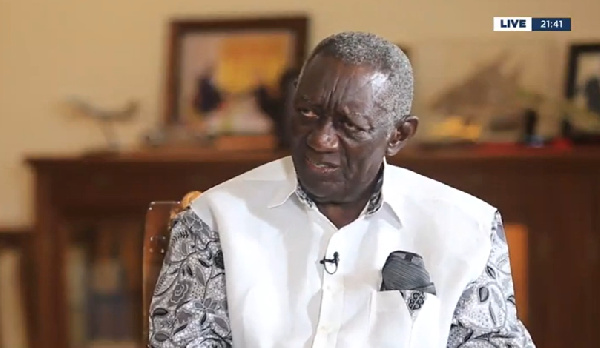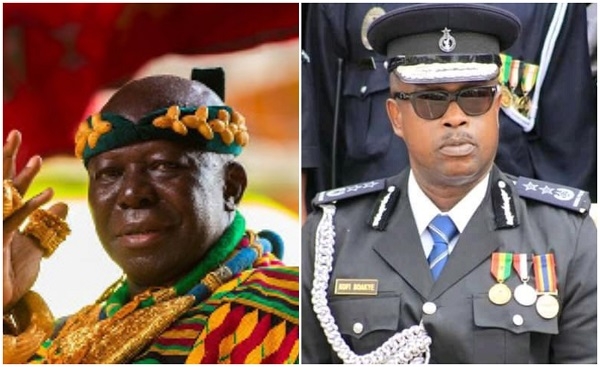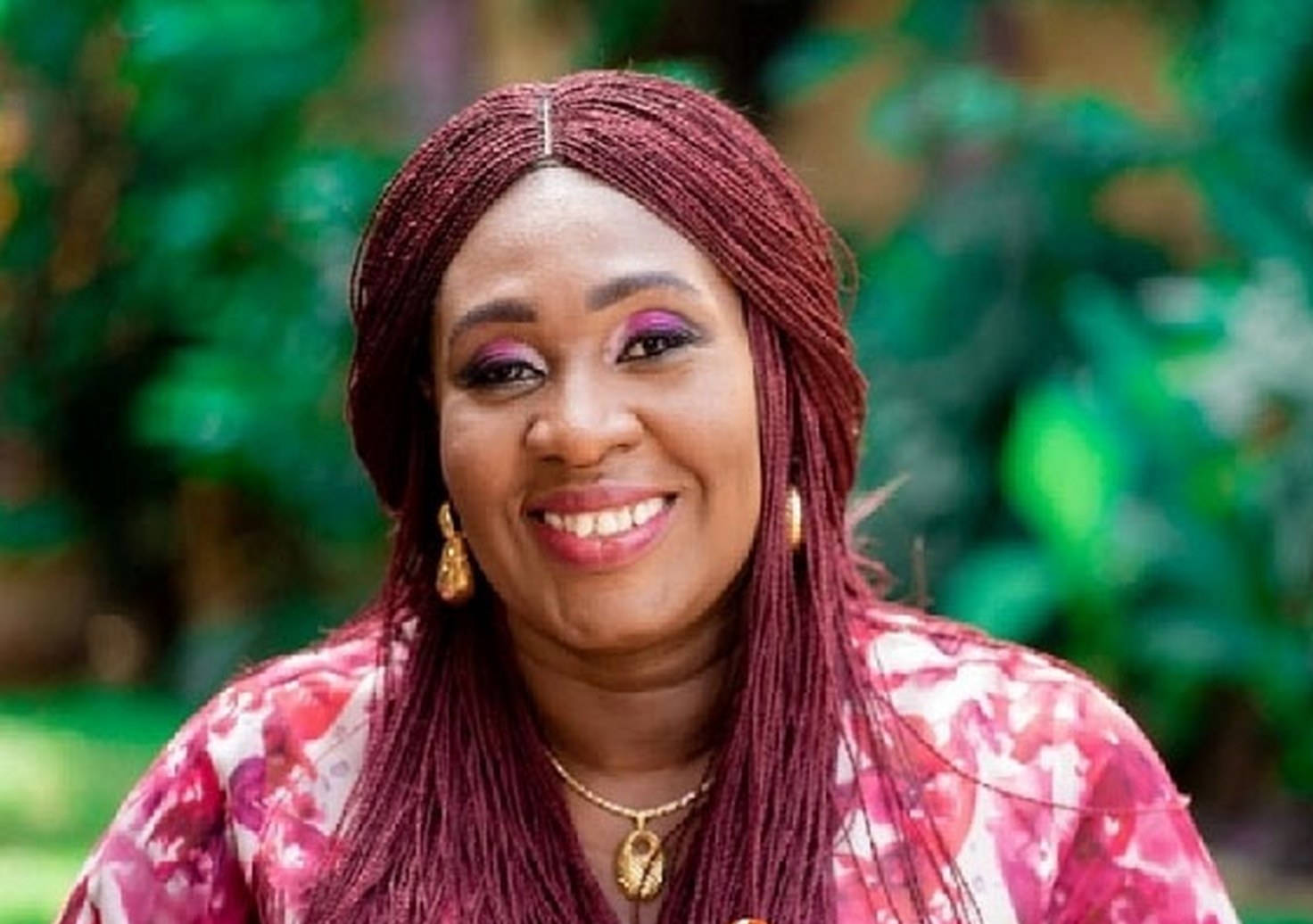
Sharif Mahmud Khalid writes: Professor Naana Jane Opoku-Agyemang; Are Academics Leaders?

Since the announcement of Professor Naana Jane Opoku-Agyemang as running to the leader of the largest opposition party in Ghana, President John Dramani Mahama, many have in the critical assessment of her suitability for passing the leadership test offered tirade commentary to the effect that a university don or for that persons in academia have no robust experience of the leadership mill.
At the height of her pass for this test lay the question of whether or not academics with their bookish outlook have any leadership experience beyond the laboratories, lecture theatres, conferences, and technically convoluted academic-speak of their chosen field of expertise.
Following from these assertions, this article seeks to open the doors and windows of the Ivory tower to passers-by in an effort to lay bare how leadership is inculcated in academics through doctoral training leading to the award of a PhD, or other terminal related research qualification.
The rigorous and laborious nature of a prospective academic in training makes experts equate it to the moniker of a ‘The Sorcerer’s Apprentice’ – a sort of workshop where academics are trained.
To start with, the three to four intense years of academic work which leads to the award of a terminal degree in any field starts with some training on general knowledge of research, engaging data, engaging literature, ethics, community entry (depending on the kind of research) among other key training with tacit leadership development at its core. Post-training, should one decide to become an academic, the development and impact of the leadership journey continues.
Academics have personal tutees they guide, mentor and support through the social, professional and academic milieu of higher education. It takes an extract ordinary kind of leadership to offer such pastoral care.
Academia is inextricably linked with society. At the risk of sounding boring let me demonstrate this with practical everyday examples. Research and Developed which is critical to human growth, survival and sustenance of corporations, medicine, business and society is conducted by academics. A classic living example of the time is the current novel Covid-19 vaccine development and clinical trials at the University of Oxford.
Tim Berners-Lee (now a Professor at MIT) as a Fellow at the European research organisation, CERN, created the World Wide Web through academic research which has become an indispensable gizmo for the transformation of society. Our everyday iPhones that are often functionally underutilised is assembled through a suit of state-funded academic and industrial research ranging from touchscreen display, global positing systems (GPS) to microelectronics, which has and continues to transform modern communication. The list is endless. These demonstrate the role of academics to the transformation of society.
Let’s now zero in on Professor Opoku-Agyemang’s role as a University don – Vice-Chancellor vis-a-vis that of what society sweepingly term as leadership. Put her gender aside, running a university is akin to running a country – a microcosm of nation, if you – given its autonomous status and vast ecosystem of faculties, schools, departments, institutions, section and units among other. As a VC, among the thousands of staff ( ranging from academic through professional services to support) are principal and key staff inclusive, but not limited to a Director of Finance (often held by a Chartered Accountant with a minimum of at least 7 to 10 years’ working experience), a Director of Audit, a Director of Physical and Infrastructural Development and a Director of Procurement ( with similar experience). Also is a Director of Legal Services, the Head Security (often head by a retired service officer not below the rank of a Captain) among other key officers. On average, save staff, a VC is often in control of over 27 to 30 thousand students. How many of our political actors have this wide-ranging hands-on experience before the ascendency to any high political office? Zilch! Can we kindly leave out the many committees both ad hoc – and standing that a VC chairs? Not forgetting the numerous halls and their administration that fall under the leadership command of a VC. Many a time are we not witnesses to serving VCs interdicted or chased out of office by either unions or students on rampage. Has any of such been attributed to Prof Opoku – Agyemang? As an autonomous institution, a VC is responsible for the physical development, key procurements, financial health, scholarship and reputation of the university. An obligation Prof Opoku- Agyemang creditably discharged. This is just a gradient of what happens at the VC level. What makes this not leadership, folks? How many of our current leaders would have experienced a quarter of the above before ever becoming an MP, a Minister, etc? How many?
Stemming from the fact this article is motivated by political consideration, let’s shift our focus a bit to that. This is done in comparison to the usage of academic clouds and credentials for the purposes of conferring political credibility on oneself. Armed with a PhD, but engrossed more in legal practice, the forbears of the NPP at the time trusted Dr JB Danquah as more of an academician. Dr Busia’ academic prowess – scholarship, too it is necessary to insist – was what was advertised throughout his political journey. We were also made to believe that Professor Adu Boahen was formidable, owing to his academic credentials. How then could the appointment of an academic as running mate to a presidential candidate today be greeted with the chorus of ‘abstract leadership experience for politics’? When the political duo of Nana and Bawumia decided to build a winnable credibility for their ticket where did they look to?
A university. A friendly university that created a ‘distinguished Professorial’ role and platform for them to launch themselves. How could we forget so soon that that distinguished visiting Professorial role was politically crafted for Dr Bawumia at the Central University for the purposes of purely political communication masquerading as an academic exercise? Mind to ask why this was done. Your guess!
Until the current Nana Addo Administration, the NPP enjoyed a gratuitous reputation as a party of intellectuals, it was on the basis of this that Nana Addo said, ‘we have the man’. This pernicious myth has be scotched.
At the international front, many academics play advisory roles to Presidents and Chief Executives of International Organisations. The names below are not to mentioned oblivions of the fact that they are insulated against criticism. Yanis Varoufakis’ stint as a towering Finance Minister of Greece epitomises effective leadership of academics in politics.
The like of Joseph Stiglitz, Amartya Sen, Paul Collier, Raghuram Rajan among many other academic who have been at the revolving door of public sector roles and the academe as well as their role in advisory capacities are living testimonies of academics in action when it comes to leadership. To add, Angela Merkel, the current German Chancellor before politics was an academic. As I write, she is counted among top global leaders and stand very tall among her peers in the effective fight against the global pandemic, COVID-19.
From the foregoing, Professor Opoku-Agyemang’s enviable wealth of experience in the academia, international role at UNESCO and political experience as a former cabinet minister is a rich reservoir of knowledge that a country can tap from.
So to say that this is abstract leadership which is politically irrelevant is to erect barriers to comprehension of the importance of the significance of the academe to human growth and development. If the records is not set and the negative impression is not corrected it will amount to one of the most sustain exercise in political propaganda ever visited on a people, with due apologies to Richard Joseph.
The writer is an Assistant Professor of Accounting and Financial Management at the University of Sheffield Management, University of Sheffield.
He serves as an Associate Editor of Qualitative Research in Financial Markets and is also a Senior Fellow of the Higher Education Academy, UK.
Source: citifmonline.com






